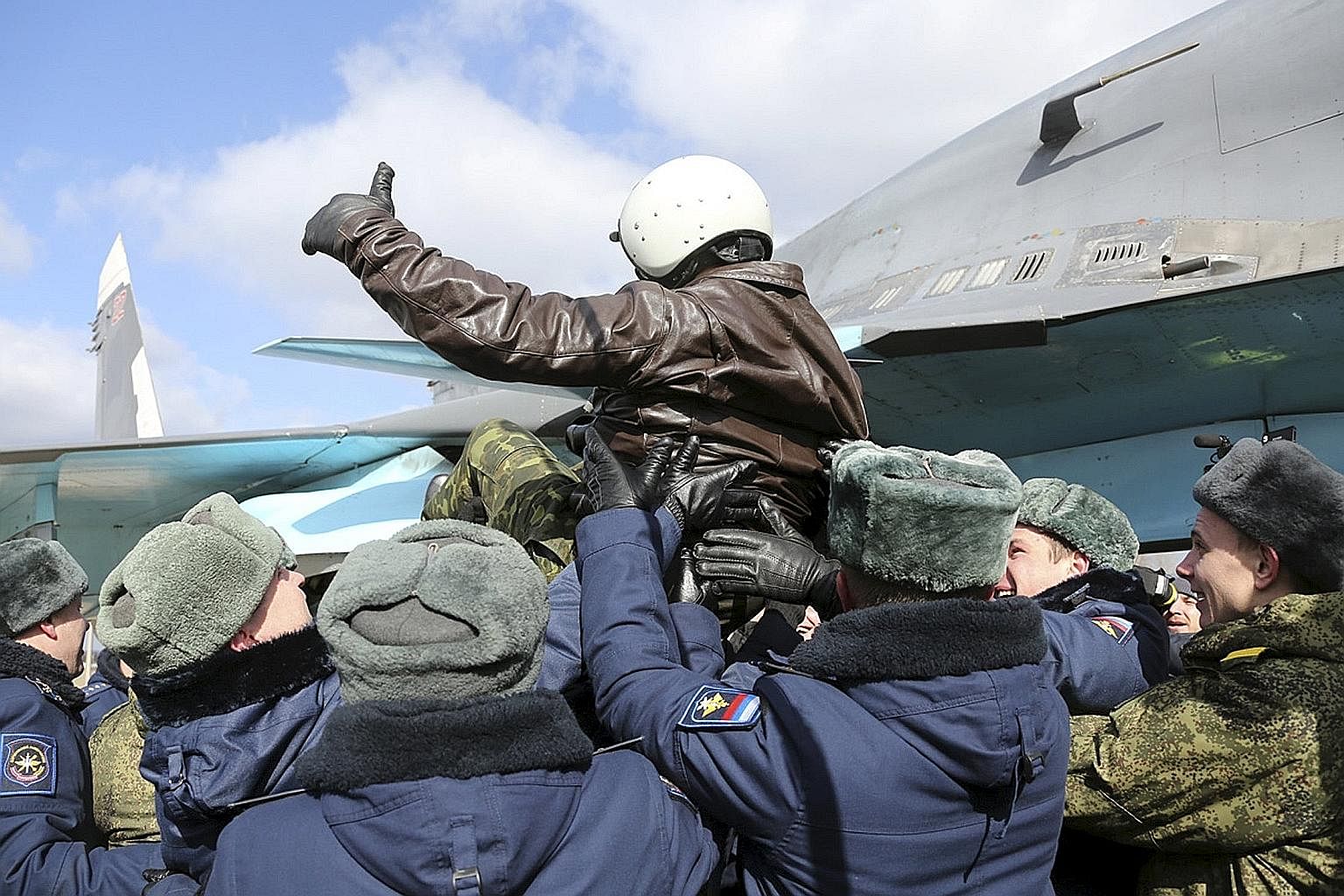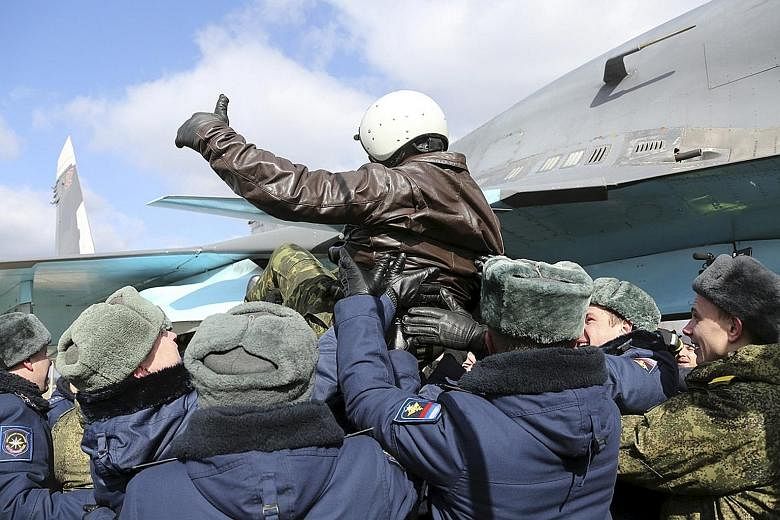ANKARA (Turkey) • Russia's President Vladimir Putin has shown yet again his talent for surprise. His abrupt announcement of a troop pullout from Syria has startled Western governments.
But that does not necessarily mean that Russia's six-month-long intervention in the Syrian civil war is now over. Nor does it mean that Mr Putin is ready to cooperate with the West in stabilising the Middle East. Rather, all that his gesture signifies is a mere change of tactics, not a fundamental shift in strategic objectives.
The Russian president ordered his forces into action last September mainly because he was persuaded by his own intelligence services that Syrian President Bashar al-Assad was at that time only weeks away from defeat.
Mr Putin decided that he could not afford to see Mr Assad, the Arab world's last remaining Russian ally, driven out of office, so he ordered his aircraft to pummel the Western-backed opposition forces in order to provide the Syrian leader with the necessary respite.
But by intervening in Syria, he also pursued other longer-term objectives.
The Russians were determined to make it clear to the United States and its allies that the days when Western governments could do what they wanted in the Middle East are over, and that Russia would have to be consulted in any future Middle Eastern initiative.

The Russians also sought to defend their two military bases in Syria, their sole outposts in the Middle East. And Mr Putin was keen to show that, after years of what he saw as marginalisation by the West, Russia was back as a global power, doing what global powers do, which is to intervene in other countries.
Parallels between the Russian military operation and other US-led operations were frequently drawn by Russian officials and the media.
Mr Putin decided to call a halt to his military operations this week largely because, at least from his perspective, Russia has obtained what it wanted from its Syria adventure. Mr Assad is not in control of all of Syria, but he is no longer in danger of being overthrown. The continued presence of the Russian bases on Syrian soil is no longer in doubt. And every foreign government accepts that any settlement to the Syrian civil war must involve Russia.
By announcing the troop withdrawal, Mr Putin is seeking to draw the attention of his own people to this supposed Russian victory. The troops are coming home, he is saying, because they have achieved their objectives.
His televised statement in which he boasted that "the task put before the Defence Ministry and Russia's armed forces has, on the whole, been fulfilled" echoed US President George W. Bush's "mission accomplished" boast at the end of the Iraq War a decade ago.
The announcement is also designed to coincide with the start of Syrian peace talks in Geneva and is presented as a sign of goodwill from Russia to the US. Mr Putin made a point of telephoning US President Barack Obama, with Moscow subsequently claiming the two leaders "called for an intensification of the process for a political settlement". That too fits into Russia's long-term objective of planting itself as a key player on the world stage. Opposing the Americans but sometimes also cooperating with them are key elements in this strategy.
It is possible, as some commentators have suggested, that the announcement of the withdrawal is also intended to put pressure on the Syrian President to return to the negotiating table.
But Mr Putin had many other ways of conveying this message to Mr Assad, if that's what he wanted to do.
It is, therefore, far more likely that the announced withdrawal was intended to shift the blame for any future fighting in Syria away from Russia to the Western- supported rebels. For Russia can live with the current status quo in Syria. Only the rebels find this status quo intolerable and have an interest in overthrowing it.
Besides, the Russian withdrawal is not what it seems. The small number of soldiers who are going back home can return to the Middle East within days should Moscow deem this necessary. And the aircraft which were the main instruments of Russia's intervention can return to the skies above Syria within hours. It is noticeable that, while Mr Putin announced the start of his troops' withdrawal, he noticeably failed to specify a deadline for the completion of this process.
In short, the episode says almost nothing about the prospects for peace in Syria. It is almost entirely intended to underline Mr Putin's claims to the title of master tactician.


